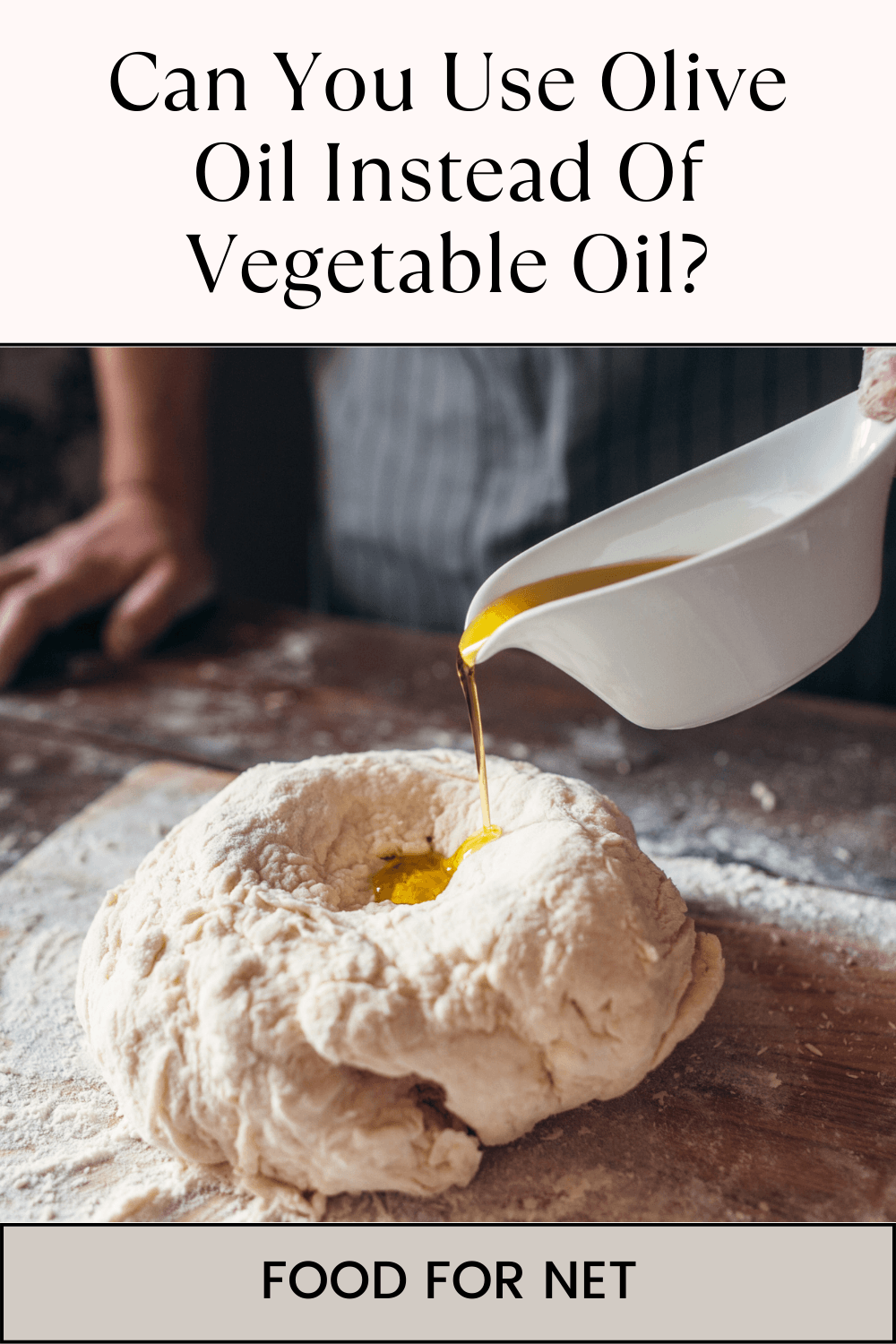
Vegetable oil is a popular and versatile ingredient for frying, baking, and countless recipes. Its popularity isn’t surprising either, as the oil is flavorless and won’t mess with any recipes. Yet, vegetable oil isn’t that good for you at all. So, can you use olive oil instead of vegetable oil? Should you? Or should you look for a different vegetable oil substitute instead?
The idea might seem strange at first. After all, olive oil has a distinctive flavor that you don’t get with vegetable oil. This is particularly true if you choose extra virgin olive oil. That flavor could easily make your meals taste weird.
There are also all the debates about smoke point to think about. We’ve often been told that we shouldn’t cook with olive oil because its smoke point is far too low, while vegetable oil has a much better smoke point.
Don’t worry. Those concerns about smoke points are mostly overblown and based on myths rather than fact. You’ll see why as we go. The short answer is that you can often use olive oil instead of vegetable oil, but there are a few things you need to think about when doing so.
Can You Use Olive Oil Instead Of Vegetable Oil?

For Frying
So, let’s get the smoke point conversation out of the way. The first point is that olive oil’s smoke point isn’t as low as you might think. For refined olive oil, you’re looking at between 450°F and 470°F, while extra virgin olive oil is between 370°F and 405°F.
Those are decent numbers, given that pan frying is typically between 325°F and 400°F. This means you don’t have much to worry about.
The exact smoke point does vary based on which report you look at and the specific olive oil being considered. But, it’s always a decent smoke point.
That’s not even the whole story. The fatty acids in olive oil mean that it doesn’t oxidize easily, even once it does start smoking. This is valuable, as oil oxidation is the most concerning aspect of cooking at high temperatures.
All told, then, you can certainly fry with olive oil. Doing so might even be better than vegetable oil. Olive oil does add a little more flavor to your food than vegetable oil, but the extra flavor normally works well.
For Deep Frying
The smoke point of olive oil is actually high enough that you can deep fry with it. Some olive oil companies even say that doing so is healthier than using other types of oil.
Refined olive oil is the obvious choice here, as it has the highest smoke point. However, California Olive Ranch suggests that you can also use high quality extra virgin olive oil (and they should know!).
Olive oil does add a subtle flavor to your fried food, but this mostly works well. You might even prefer your food cooked this way.
In Baking
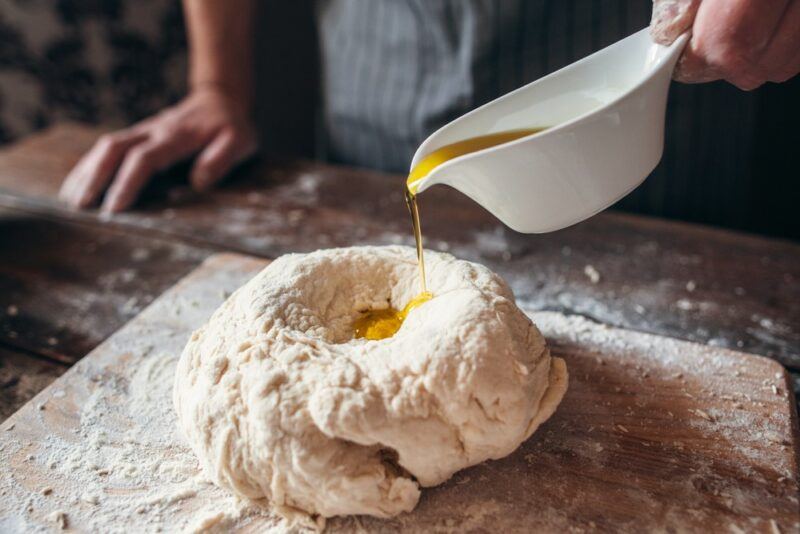
Surprisingly, olive oil can easily work in baking. This includes pretty much any type of baking you can think of, including bread, cookies, cakes, and more.
You might want to use mild olive oil or refined olive oil here. These products have a more subtle flavor, so they won’t mess with the taste of your baking.
In Cakes
Olive oil is a surprisingly good swap for cakes. It helps to keep the cake spongy and moist, reducing the risk that it becomes too heavy and dense.
Olive oil is best for cakes that have distinct flavors of their own, including chocolate cake and fruit-based cakes. Here, the taste of olive oil complements the other flavors without overwhelming them.
That’s not all, you can even use olive oil instead of vegetable oil in a boxed cake mix. Again, you’re looking for a cake that has a notable flavor of its own.
For Pizza Dough
No surprises here. Olive oil works well in pizza dough. The oil’s flavor nicely complements all the other flavors on your pizza. This is one of those cases where a flavorless option like vegetable oil doesn’t even make sense.
For Roasting Vegetables
You have plenty of options when roasting vegetables. Most types of oil will work well, including olive oil.
However, it’s best to skip the expensive extra virgin olive oil for this use, as the flavor nuances of your oil will get lost. Try sticking with virgin olive oil or even refined olive oil instead.
For Salad Dressings
Salad dressings are one of the best places to use olive oil, as the oil’s flavor naturally complements salad ingredients. You’ll almost always get a better tasting dressing with olive oil than with vegetable oil.
In Marinades
Any marinade recipe that calls for vegetable oil can easily use olive oil instead. After all, your meat already has a rich flavor, so the olive oil isn’t going to overpower anything. You’ll still get some extra flavor – just enough to make the meal even more special.
In Other Situations
Are you starting to see a pattern? You can almost always use olive oil instead of vegetable oil. This includes using the oil in brownies, pancakes, muffins, bread, and many more recipes.
The substitution is an easy one. You’re just using a 1 to 1 ratio. After all, most cooking oils will behave exactly the same way in your recipes.
Olive Oil Vs Vegetable Oil
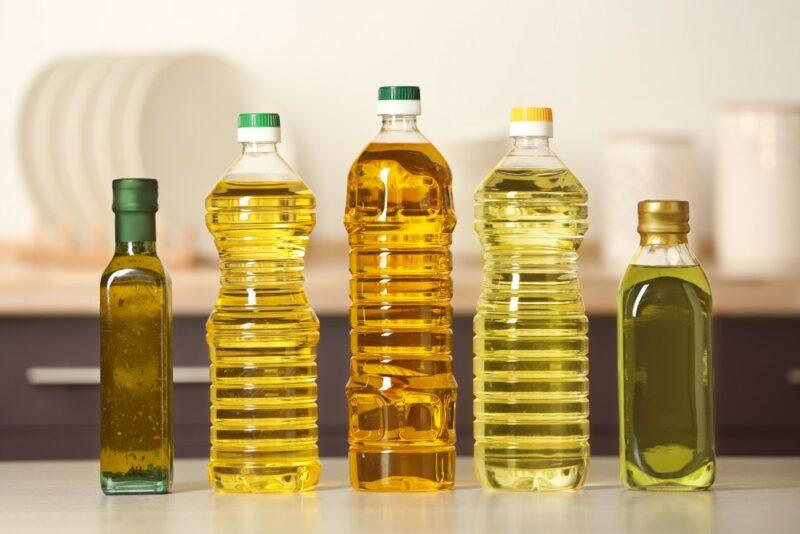
Clearly olive oil works well in many situations, but which oil should you use? To answer this, we need to talk a little about the differences between the two oils.
Vegetable Oil
The traditional definition of vegetable oil is a neutral oil made by extracting oils from nuts, fruits, seeds, and even grains. Some vegetable oils are named for their ingredients, like sesame oil, peanut oil, and canola oil. You’ve probably seen some of these in local grocery stores.
The version we’re talking about today is simply labeled vegetable oil. It includes a combination of different vegetable oils and is typically highly processed.
There are some serious issues with vegetable oil, starting with how it is made. The oil is generally extracted using chemical solvents and then goes through various purifying and refining steps. It may even be chemically altered.
In fact, vegetable oil is often seen as one of the worst oils for your health, partly because of the refinement and omega 6 content.
Omega 6 fatty acids are important and offer benefits, that’s true. But, consuming too much omega 6 and not enough omega 3 may increase inflammation and potentially raise the risk of some diseases in the process. The popularity of vegetable oils means they quickly contribute to this problem.
The fatty acids in vegetable oil also easily oxidize at high temperatures. This actually makes vegetable oil a poor choice for high temperature cooking.
Honestly, all the oil has going for it is the neutral flavor profile. That’s not enough to recommend it.
Olive Oil
Because olive oil comes from a plant, it is sometimes considered a type of vegetable oil (you could also argue that it is essentially fruit juice). However, it’s normally placed in a separate category, partly because it is much more flavorful than vegetable oils and has its own distinct characteristics.
Unlike vegetable oil, olive oil is minimally processed. This is particularly true for extra virgin and virgin olive oil, which are produced using cold pressing.
Olive oil is a rich source of antioxidants and monounsaturated fats, both of which have been linked to many health benefits. The monounsaturated fats are what protects the oil from oxidizing at high temperatures.
While vegetable oil is associated with increased inflammation, olive oil tends to reduce inflammation, making it much more powerful. Foods that fight inflammation are incredibly important, as many parts of our modern diets promote inflammation instead.
Which Is Better?
When it comes to health, olive oil is the clear winner. This is even true when you’re cooking at high temperatures.
Still… there’s the question of flavor. The distinctive taste of olive oil won’t work well in all recipes. This is particularly true for baking, where you’re trying for a very specific flavor profile.
So, while olive oil is certainly healthier, you might still use vegetable oil in some recipes. Alternatively, you could shift to refined olive oil, as this version has a less intense flavor and should still be healthier than vegetable oil.
One more thing. While olive oil is healthier than vegetable oil, the two products are roughly the same in terms of calories and fat. You still need to watch your total fat consumption, especially if you’re struggling with your weight or are at risk of heart disease.
Other Oils You Can Use
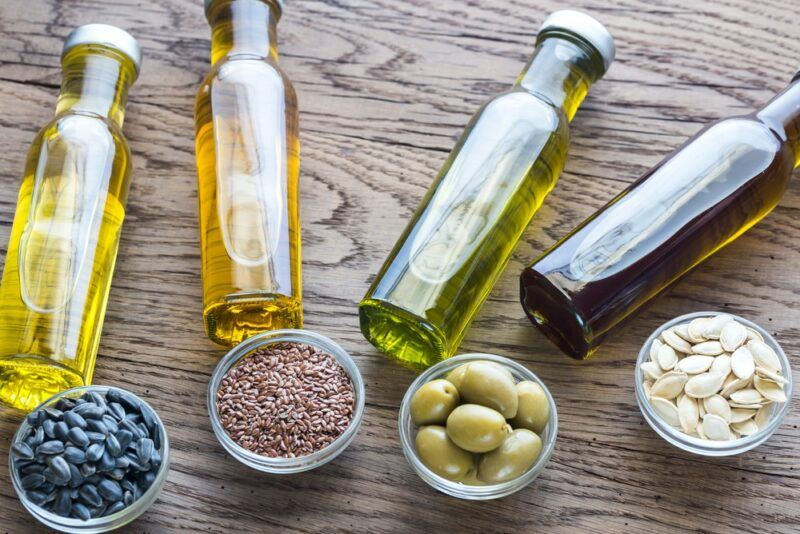
The health benefits of olive oil can’t be denied. Still, the flavor profile isn’t always the right fit. Let’s look at some other options.
Avocado Oil
Avocado oil is the most obvious alternative to olive oil, as it is minimally processed. It’s also another source of monounsaturated fats and antioxidants.
Because this oil is liquid at room temperature, you can use it in a 1 to 1 replacement for vegetable oil (or olive oil). The smoke point is decent too. Actually, refined avocado oil has one of the highest smoke points you’ll see, sometimes getting up to 520˚F.
Cold Pressed Sunflower Oil
Sunflower oil is an interesting case. It’s normally highly processed, but you can find cold pressed sunflower oil. The cold pressed version is certainly the healthier option and is a fantastic choice alternative to vegetable oil.
Coconut Oil
Coconut oil is quite different, as it is high in saturated fats and easily solidifies in cool temperatures. As a result, it works well in some recipes and not at all in others.
When deciding, you’ll need to think about your food’s flavor profile and texture. For example, you can use coconut oil easily for roast vegetables, as they’re being cooked at a high temperature, but coconut oil mightn’t work well in some cases or other baked goods.
Butter
Butter can sometimes be used instead of vegetable oil as well (as can ghee). Again, you need to think about how the solidity and flavor of the butter affect your recipe.
Thankfully, butter is already used in many recipes, so it’s not an unusual idea at all.
Other Neutral Oils
The previous approaches are all minimally processed and may offer some health benefits. However, they’re not your only options. You can also turn to other types of neutral and high heat oils, such as canola oil and grapeseed oil.
While these oils have some of the same health concerns as vegetable oil, at least they won’t change the flavor and texture of your recipe. Besides, most people don’t need to cut such oils out entirely. It’s often enough to simply decrease your intake and choose healthy oils as much as you can.
Final Thoughts
Most of the time, the oil you use doesn’t really matter. So, you can swap for olive oil or something else as you wish. Just think about the flavor first, to make sure the olive oil won’t mess up your recipe.
If the flavor isn’t quite right, why not try a different type of healthy cooking oil, like avocado oil, cold pressed sunflower oil, or coconut oil? These can all be fantastic in the right situations.

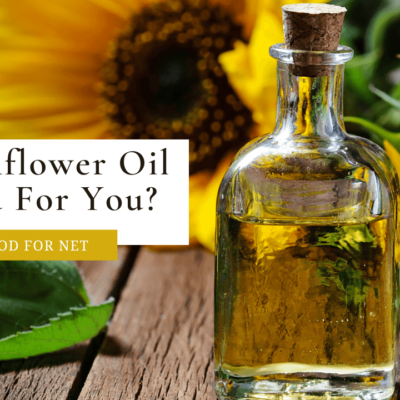
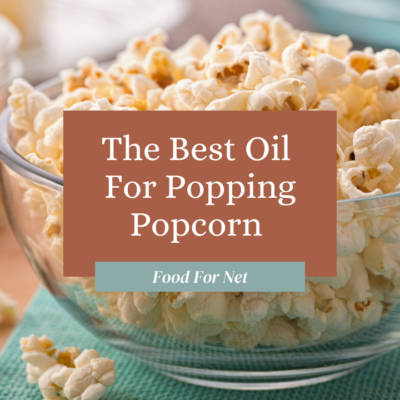
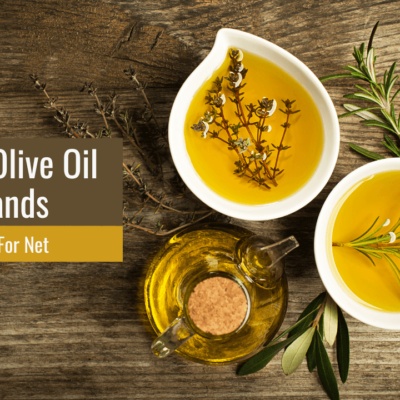
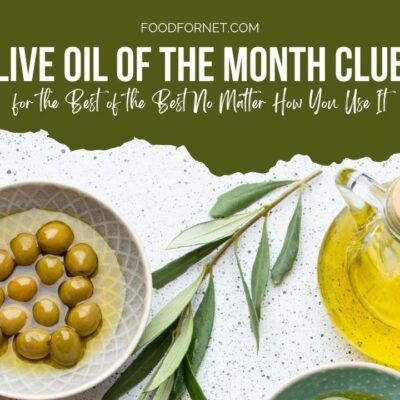
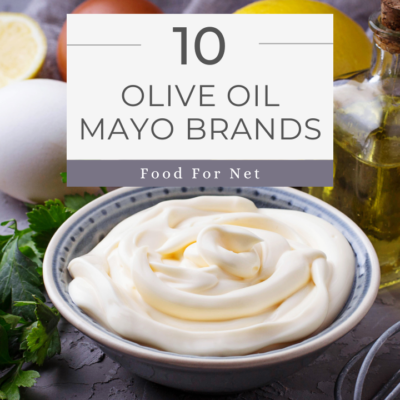
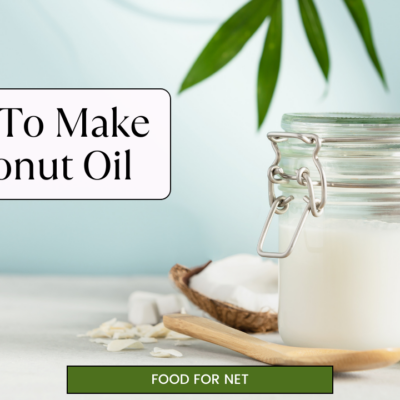
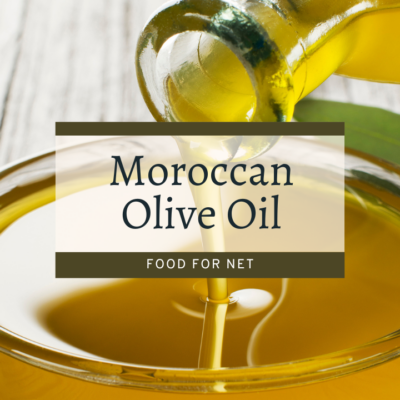
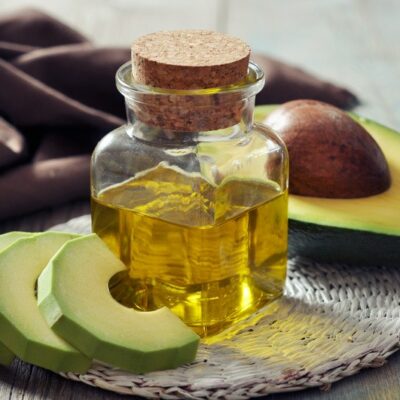
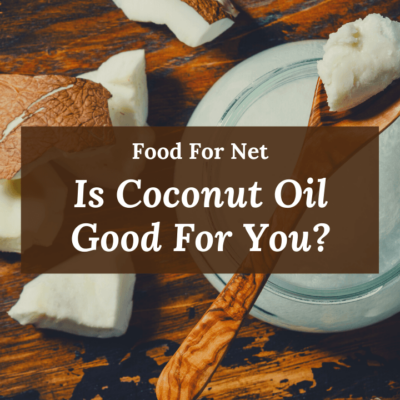
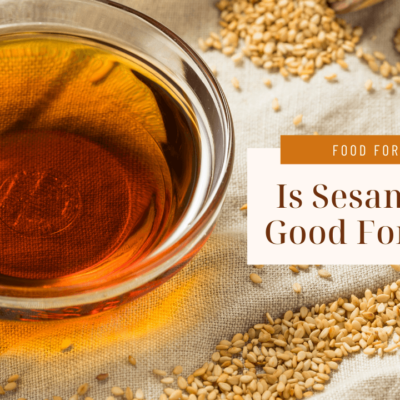
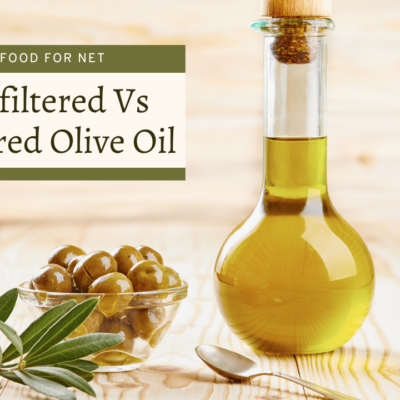
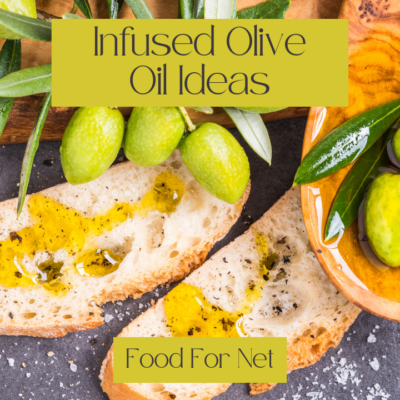
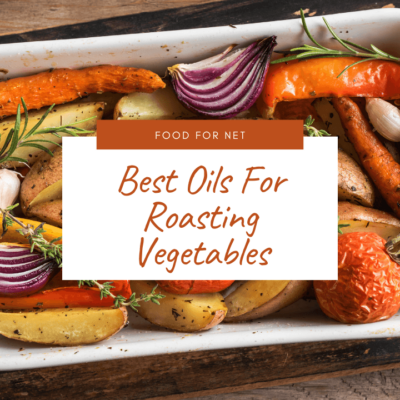
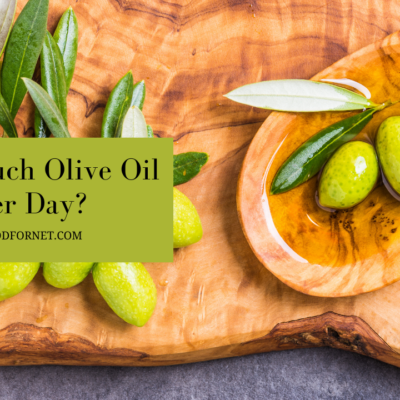
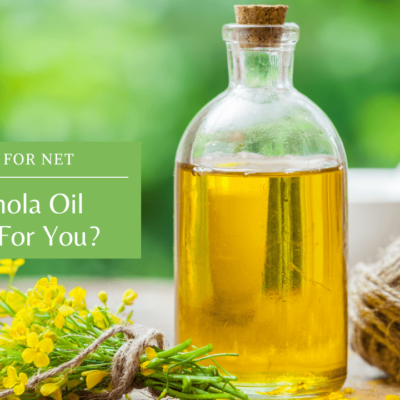
 14 Best Laying Hens For Your Backyard Or Homestead
14 Best Laying Hens For Your Backyard Or Homestead
Leave a Reply